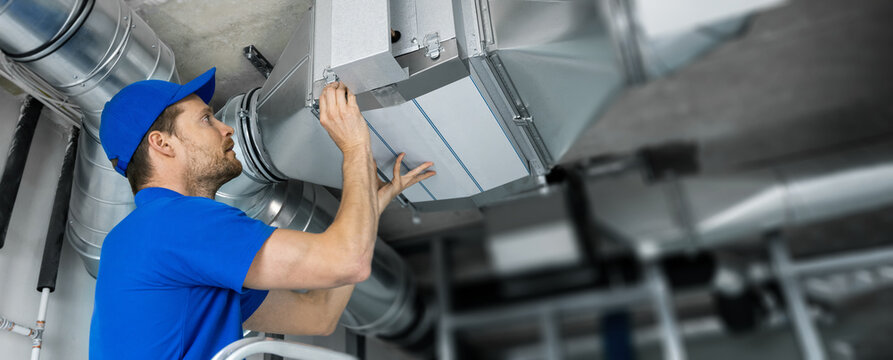Your HVAC (Heating, Ventilation, and Air Conditioning) system plays a critical role in maintaining the comfort of your home throughout the year. Whether it’s keeping you warm during the winter or cool in the summer, an efficient HVAC system is essential for your well-being. However, like any mechanical system, HVAC units are prone to wear and tear over time. Recognizing the early signs that your HVAC system requires repair can prevent minor issues from becoming major problems. We will explore the top ten warning signals that indicate your HVAC system needs attention, ensuring you remain comfortable and avoid costly repairs—Trust Sarkinen Heating and Cooling in Vancouverfor HVAC repair services.
Unusual Noises
When your HVAC system is functioning correctly, it should operate relatively quietly. However, hearing unusual noises such as grinding, squealing, or banging indicates something is wrong. These sounds can be caused by various issues, including loose components, a failing motor, or debris obstructing the system. Ignoring these noises can lead to further damage and more expensive repairs. Addressing these sounds promptly is essential to maintain the system’s efficiency and longevity.
Inconsistent Temperatures
One of the primary functions of an HVAC system is to maintain a consistent temperature throughout your home. If you notice significant temperature variations from room to room, it could be a sign that your HVAC system is struggling. This inconsistency can be due to a malfunctioning thermostat, blocked vents, or issues with the ductwork. Sometimes, it may indicate that your system needs to be the right size for your home, necessitating professional evaluation and adjustment.
Poor Airflow
Poor airflow is a standard indicator that your HVAC system requires repair. If some areas of your home receive little to no airflow, it could be due to a clogged filter, blocked ductwork, or a failing blower motor. Adequate airflow is crucial for maintaining indoor air quality and ensuring your HVAC system operates efficiently. Neglecting this issue can lead to uneven heating or cooling, increased energy bills, and unnecessary strain on the system.
Frequent Cycling
HVAC systems are designed for cycling on and off at regular intervals to maintain the desired temperature. If you notice that your system is cycling on and off more frequently than usual, it may be a sign of a problem. This issue, known as short cycling, can be caused by an oversized system, a malfunctioning thermostat, or refrigerant issues. Frequent cycling wastes energy and puts additional stress on the system, leading to premature wear and tear.
High Energy Bills
A sudden spike in your energy bills without a corresponding increase in usage is a strong indicator that your HVAC system is not operating efficiently. Various factors can contribute to higher energy consumption, including dirty filters, leaky ductwork, or an aging system no longer functioning optimally. Regular maintenance and timely repairs can help identify and resolve these issues, reducing energy costs.
Unpleasant Odors
If you detect unpleasant odors from your HVAC system, it’s a sign that something is amiss. Musty or moldy smells can indicate the presence of mold or mildew within the system or ductwork, which can negatively impact indoor air quality and pose health risks. Burning or smoky odors may suggest electrical issues or overheating components. Addressing these smells promptly can prevent serious problems and ensure a safe and healthy home environment.
Excessive Humidity
Your HVAC system regulates humidity levels in your home. If you notice that your home feels excessively humid or that there is condensation on windows and walls, it could be a sign that your HVAC system is not functioning properly. High humidity levels can lead to mold growth, damage to furniture and walls, and an uncomfortable living environment. This issue often indicates problems with the cooling system or improper ventilation.
System Age
The age of your HVAC system can be a significant factor in determining when it needs repair. Most HVAC systems have a lifespan of 10 to 15 years. If your system is approaching or exceeding this age range, it is more likely to experience frequent issues and decreased efficiency. Regular maintenance can extend the life of your system, but eventually, wear and tear will necessitate repairs or even replacement. Monitoring the age of your system helps you plan for necessary upgrades and avoid unexpected breakdowns.
Thermostat Issues
The thermostat is the control center of your HVAC system. If your thermostat is not functioning correctly, it can lead to various problems, including incorrect temperature readings, frequent cycling, and inconsistent temperatures. Issues with the thermostat can stem from faulty wiring, dead batteries, or outdated technology. Ensuring your thermostat is in good working order is essential for maintaining a comfortable and efficient home environment.
Water Leaks
Water leaks around your HVAC system clearly indicate something is wrong. Various issues, including clogged condensate drains, a cracked or rusted drain pan, or a refrigerant leak, can cause leaks. Water damage can lead to mold growth and structural issues within your home, making it crucial to address leaks immediately. Regular inspections and maintenance can help identify and fix these problems before they cause significant damage.
Paying attention to the signs that your HVAC system needs repair is crucial for maintaining a comfortable and efficient home. Unusual noises, inconsistent temperatures, poor airflow, frequent cycling, high energy bills, unpleasant odors, excessive humidity, system age, thermostat issues, and water leaks are all warning signals that should not be ignored. By addressing these issues promptly, you can extend the life of your HVAC system, improve its efficiency, and prevent costly repairs or replacements. Regular maintenance and timely repairs ensure that your HVAC system continues to provide the comfort and reliability you need throughout the year.
Keep an eye for more news & updates on VentsFashion.Com!

